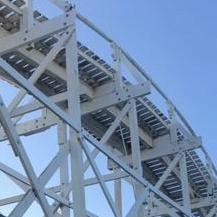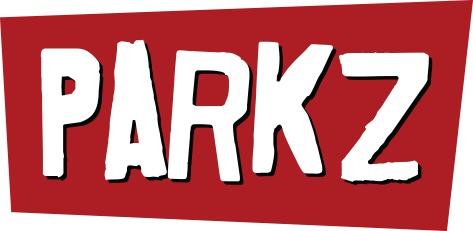-
Posts
640 -
Joined
-
Last visited
-
Days Won
17
Everything posted by TBoy
-

Disney Expanding Footprint Name In Australia
TBoy replied to Chalky's topic in Theme Park Discussion
I think some people have suggested Merlin buy Dreamworld and do an Elitch Gardens style conversion into "Legoland Australia"? Only problem is Legoland parks aren't very thrill-heavy unlike Dreamworld, but I'm sure they could somehow do it. -

Disney Expanding Footprint Name In Australia
TBoy replied to Chalky's topic in Theme Park Discussion
Ground-up, no. The only way we could see one is if Village lost the WB license and signed a deal with Universal to use their properties, and that would be unlikely because Universal would demand certain quality standards that Village wouldn't be able to afford to meet. -
I'm not sure that would work without changing the dark section significantly, also I don't think a spike would fit inside the building. It would also damage the story, it wouldn't make sense for Superman to go backwards into the subway and up then back through the Subway,
-

Disney Expanding Footprint Name In Australia
TBoy replied to Chalky's topic in Theme Park Discussion
Everytime a company buys a big plot of land in Victoria for development or Disney announces anything money related: "DiSnEyLaNd CoUlD bE cOmInG tO aUsTrAlIa SoOn" -
Watching a few videos from @Ogre shows nobody is past main street, anything above is a ghosttown. Hopefully something comes to replace it, the hypothetical replacement also utilising the showstage is a plus.
-
It said that it is both, while they are repairing it they are also fixing up the queue
-

Top Thrill Dragster at Cedar Point "Closing"
TBoy replied to Coasterjoe's topic in Theme Park Discussion
Just thinking about the closure, could it be that the wheels are compatible with the Zamperla track but not the Intamin track? I have been a bit sceptical of the ride when it was announced that it would use the Zamperla track but reuse the Intamin track. -
Unfortunately a part of Superman failing could be expected; its an old model that has been discontinued and a coaster hasn't been built in 14 years. XCelerator had issues around its 20 year anniversary with its launch and was closed for 18 months and we know what happened with Top Thrill Dragster and the hydraulic system was removed. Regarding with Doomsday "we are currently exploring options" seems that the ride ever opening is uncertain. It is likely they won't say anything and remove it later once WOZ is done based on the parks track record. With Scooby, its likely work hasn't been done because they needed to close the ride urgently, and Village would have to wait for Mack to finish with their other coasters before coming to work on Scooby, and nothing happening would mean they are still busy. Good to see DCR opening early, although they could just be saying that so people aren't as angry, Most likely a flat or a seating area but I would love for these to come: 1. Dark Ride, showstage building extended out to Doomsday to fit in a bigger ride with more scenes 2. Mack XTreme Spinning Coaster, you could have the launch go through Doomsday and the Showstage out behind Scooby. For theme I have been thinking either generic filmmaking or Mad Max.
-
The Flash is undergoing technical rehearsals (thanks to ChrisEvans via TSPN)
-

Wizard of Oz - Movie World Arkham Asylum Replacement
TBoy replied to Park Addict 93's topic in Theme Park Discussion
Another comparison showing the whole land: Looking at the differences: The Castles are both simplified significantly The House and the Barn have been combined into one larger barn All the rocks and gravel have been removed on FOTWW, making it look weird Kansas Twister does not go over the path anymore The Arkham station isn’t covered up (looks a bit ugly imo) Not as much trees blocking sightlines (not that movie world cares) Next time we need to be reminded when we see concept art that the land is likely not going to be like this. Remember when Leviathan and Jungle Rush were going to have mountains? 8F9CEFAF-F0D5-4BB3-B8F9-0EA1A5BA9C05.webp -

Wizard of Oz - Movie World Arkham Asylum Replacement
TBoy replied to Park Addict 93's topic in Theme Park Discussion
Comparing the original sketches to the ones seen on the ad: Oz Land: Inside: The Entrance: So yeah, quite a downgrade from the art. But I saw a post where the designer says he doesn’t place a budget on the art and the designers “probably hate him”. The same happened with Jungle Rush, remember the original art and what we are getting. B9A3BA7E-8737-477E-A058-F1086AA694C4.webp -
Just looking at that GIF, lets say the ride goes up the turntable and around the red part then back up the turntable, would there be an option to make it go to red again and make it loop as long as they want? Would be good for influencers making a "who can stay on the rollercoaster the longest" video.
- 1,458 replies
-
- vekoma
- dreamworld
-
(and 2 more)
Tagged with:
-
About the Superman queue refurb: Why does it have to be now, not during its maintenance period??? You don’t need two periods to do it!
-
The original concept art for Jungle Rush with the mountain wasn't
- 1,458 replies
-
- 1
-

-
- vekoma
- dreamworld
-
(and 2 more)
Tagged with:
-
I personally do not see a point in replacing the facade. Why spend all that money with no gain? Nobody would go just because of a new facade. You would also need to retheme the entire queue which would cost a lot of money.
-
I don't believe that it should be online only: what happens if the app glitches out and nobody is able to get Fast Track/Backwards? Village and Coast wouldn't want that as no fast track purchases = no money. And what if there is a Optus outage for example and Optus costumers can't use internet, and therefore cannot buy fast track? I think there should always be a physical option incase something goes wrong.
- 8 replies
-
- village roadshow
- app
-
(and 2 more)
Tagged with:
-
Just spoke to one of my family members about it, they want to spend 2 days at Universal as it has Mario, Harry Potter, Jurrasic Park etc. but only wants to spend 1 day combined at Disney. Not sure if that will be enough so I am thinking we might have to cut that out. Also we might go in June/July if it is too busy. The problem is there would be 11 rides with Express that I would want to use (FOTH, Forbidden Journey, Jurrasic Park, Hollywood Dream, Flying Dinosaur, Space Fantasy, Jaws, Minion Mayhem, Mario Kart, Yoshi and DK) but only 7 slots for the highest express pass. What four would you recommend I cut, or should I buy two express passes.
- 14 replies
-
Hello everyone: Me and my family are looking at maybe doing a trip to Japan, most likely in April or May 2026 but that is not confirmed yet. Any places we should go? We will most likely be going to Osaka and maybe Japan via the Bullet Train, so we are looking at things to do there. We want to go to Universal in Osaka and maybe Tokyo Disney, but we wont just be doing a park trip so we want some suggestions on what else there is to do in Japan. If any previous visitors to Japan could leave some tips here that would be great.
- 14 replies
-
Yes, quite confusing. Why do they have to spend money switching it around and extending buildings out when they can just use the space like it was before and save costs?
-
It was the last shop before you entered Kids WB (across from the kids store) and the one that connected to the hut. I am guessing this happened: MW expected to build the arcade and demolished the Looney Gardens, but they must of did measurements and there was not enough space to fit it in, so they needed to relocate the First Aid for it to fit. But DCeased was likely already being built, so they had to wait for Fright Nights to finish before starting work. They waited until after Christmas and Dirty Harrys refurb was done, then started work on the Intencity building. First Aid would need to be open while construction is done: so they had to wait to close it until the new first aid area opened, and now that it is, they can begin construction on the arcade.
-
Looks like the DCeased maze (if it returns) will be moved into the Showstage as First Aid is now using the Intencity building
-
The First Aid Centre has been moved to Intencity at the back of the park, and apparently the former First Aid building will be extended for the Arcade



